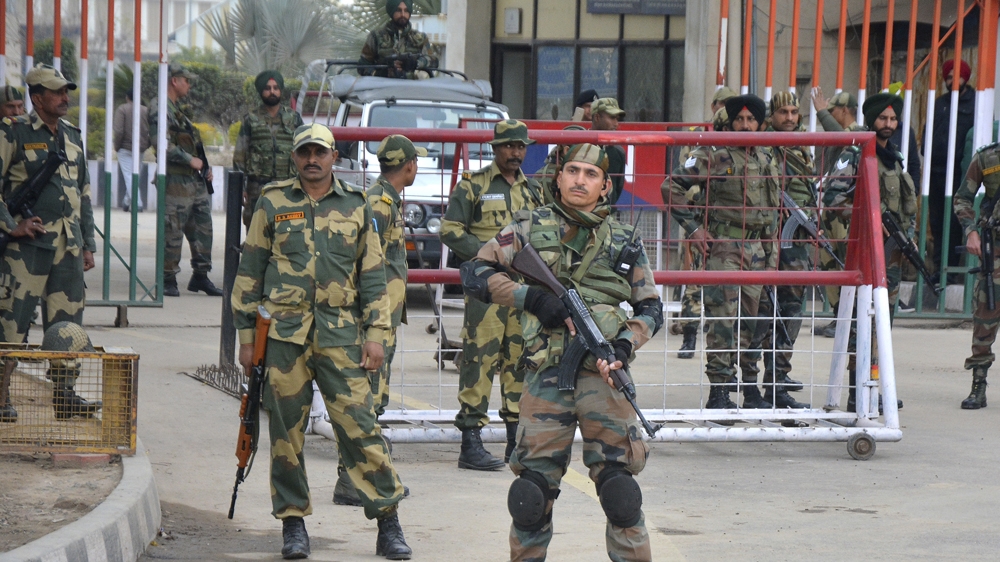Dr. Ghulam Nabi Fai
According to expert consensus, Kashmir is the most dangerous place on the planet today because it could trigger nuclear volleys between India and Pakistan. It has sparked two wars between the two South Asian rivals in the past. Thus, this is no time for complacency or aloofness for the world powers. It should seek mediation of the disputed territory (so listed by the United Nations), appoint a special envoy on Kashmir, insist that the genuine political voice of the Kashmiri people be a full partner in all negotiations over Kashmir’s political destiny.
Meanwhile, I would like to highlight a few fundamental misconceptions which have impaired an enlightened foreign policy of world powers towards Kashmir for many decades. Among the most prominent and pernicious are:
1. Kashmir acceded to India on October 27, 1947. Wrong.
The Maharaja of Kashmir allegedly signed an instrument of accession to India simultaneously with pleading for its military intervention to prop up his toppling repressive regime on October 27, 1947. A full-scale internal and indigenous revolt was on the verge of success at that time. On that date, sovereignty had devolved on the people of Kashmir, and thus the Maharaja was legally powerless to accede Kashmir to any country and thereby extinguish its independence. Moreover, as British scholar, Alistair Lamb has convincingly demonstrated in “Kashmir: A Disputed Legacy, 1846-1990,” the Instrument of Accession is probably as bogus as the ugly Protocols of the Elders of Zion confected by the Russian Tzar’s Okhrana secret police. An original of the document has never been produced by India or anyone else.
2. Kashmiri is the issue of fundamentalism. Wrong.
The term fundamentalism is quite inapplicable to Kashmiri society. Kashmir has remained the symbol of communal harmony for centuries. It has a long tradition of moderation and non-violence. The traditional hallmark of Kashmir has been religious pluralism, amity, and an aversion to the doctrinaire. Its culture cannot and does not generate extremism or fundamentalism. Its four major religious groups—Islam, Hinduism, Sikhism, and Buddhism—live in neighborhoods together; they work together; they socialise together; they celebrate and mourn together; they are a model of religious harmony and ecumenism.
3. Kashmir is an issue of terrorism. Wrong.
On many occasions, virtually all the citizenry of Srinagar (Capital city of Kashmir)—men, women, and children—came out on the streets to lodge a non-violent protest against the continuance of Indian occupation. According to the Srinagar-based newspapers on many occasions in early 1990 more than one million Kashmiris demonstrated against India with 400 memoranda sent to the United Nations to apprise it of the tragic and intolerable situation in the Valley.
Reuters news agency reported on August 18, 2008, “Tens of thousands of Muslims marched peacefully past the United Nations office in Kashmir on Monday, calling on the international body to intervene over the disputed Himalayan region.”
Certainly, terrorists cannot compose the entire populations of the major towns of Indian-Occupied Kashmir. Unquestionably, half a million people cannot be called terrorists. And more importantly, terrorists do not believe in submitting memoranda to the office of the United Nations as the people of Kashmir do.
4. Pakistan is in violation of the United Nations resolutions since it did not withdraw its troops from Kashmir as required under these resolutions. Wrong.
Professor Joseph Korbel who was the first Chairman of “United Nations Commission for India and Pakistan” has responded to this question in his article, “Nehru, The UN and Kashmir” published in ‘The New Leader’ on March 4, 1957. He writes, “According to the Indian delegate, Pakistan prevented implementation of the section of the UN Commission resolution dealing with a plebiscite by refusing to carry out other parts recommending demilitarisation of Kashmir. This is not true: Pakistan was not expected to withdraw her forces from Kashmir as long as there was no agreed-upon plan for simultaneous Indian withdrawal.”
5. Kashmir is an integral part of India. Wrong.
Under all United Nations Security Council resolutions, agreed between India and Pakistan, negotiated by the United Nations, and endorsed by the Security Council, Kashmir does not belong to any member state of the United Nations. If Kashmir does not belong to any member state of the United Nations, then the Indian claim that Kashmir is its integral part does not stand.





